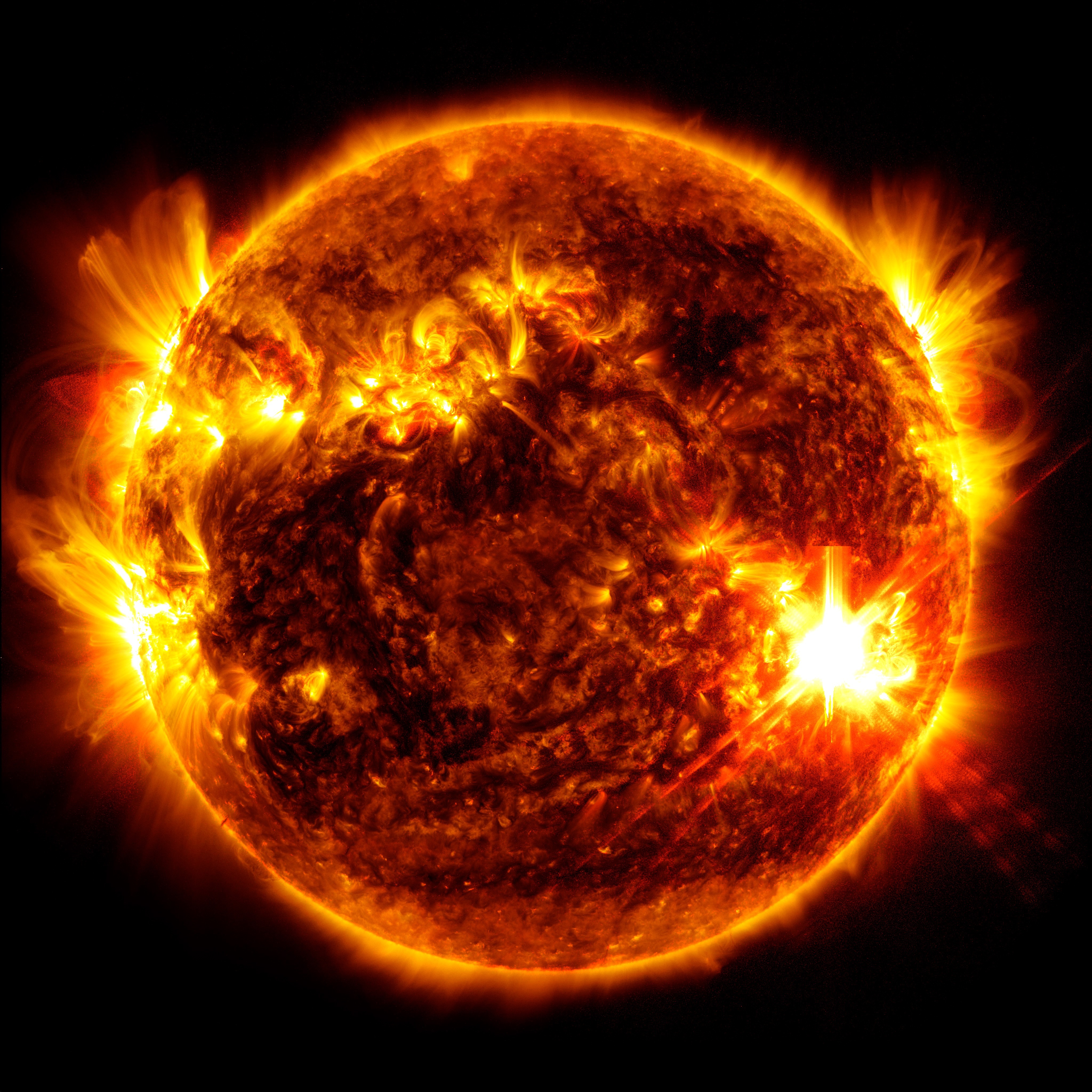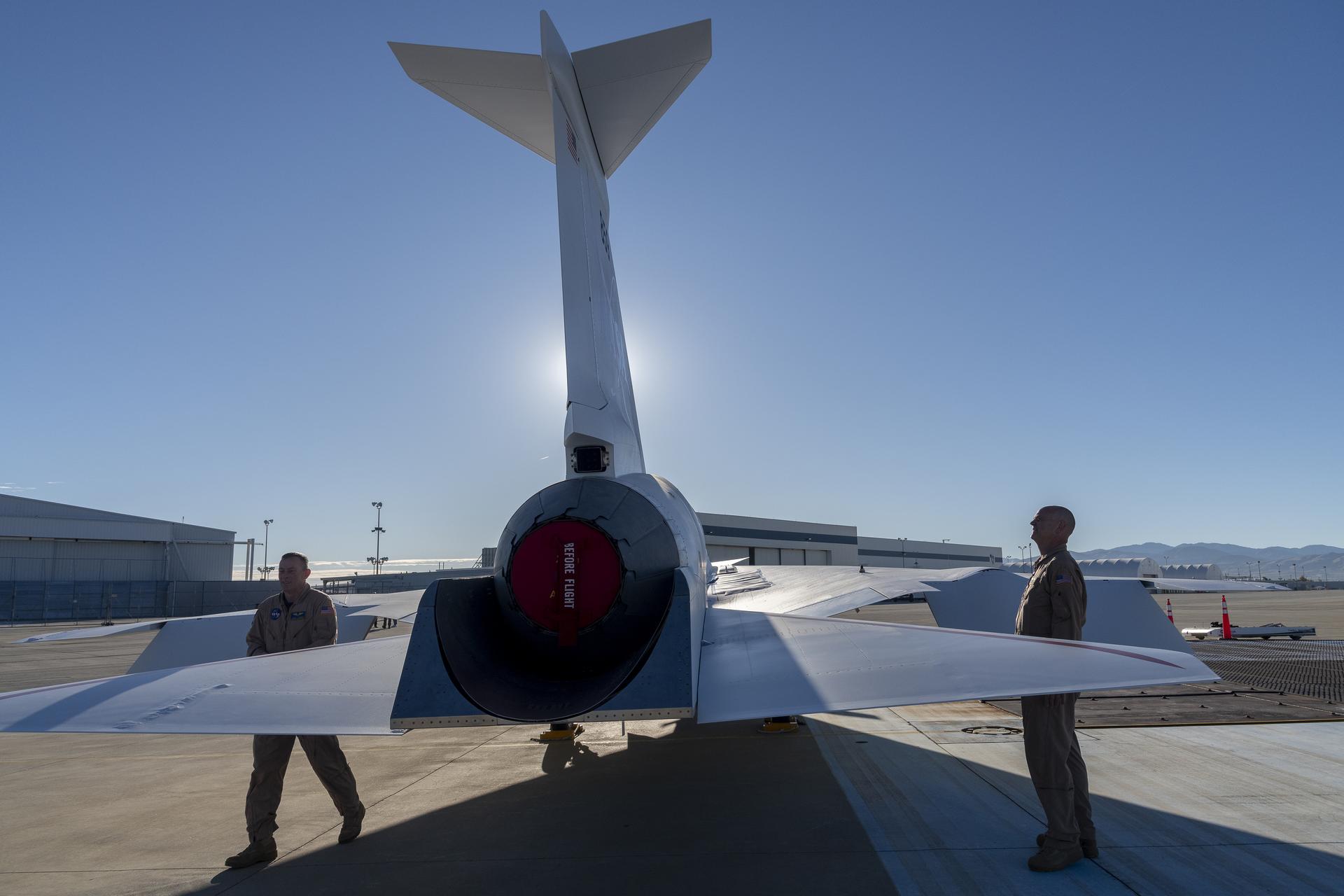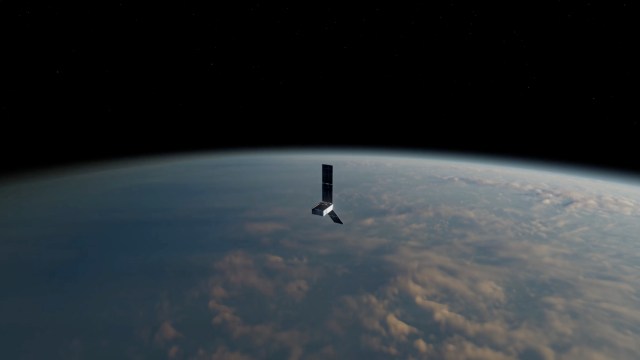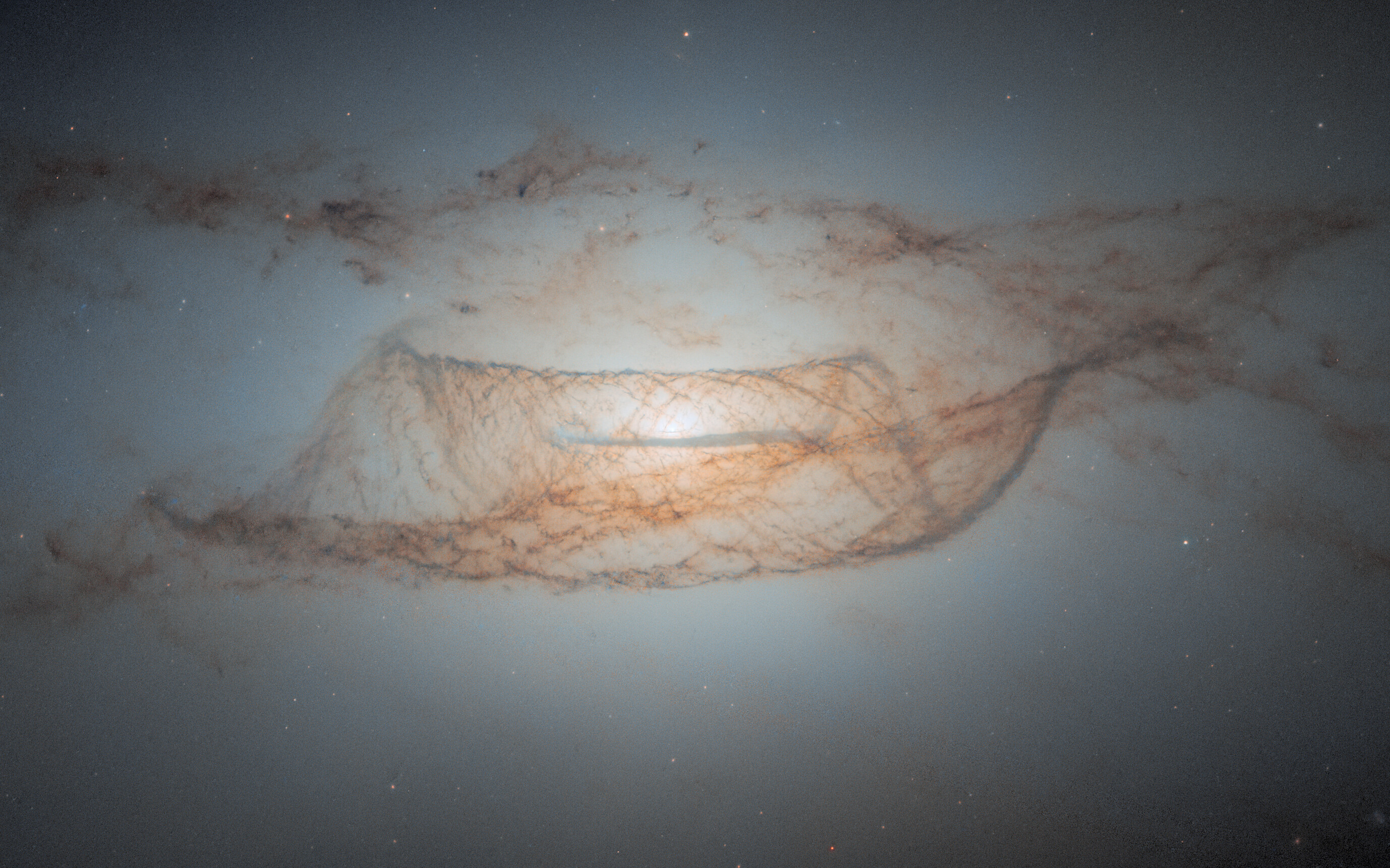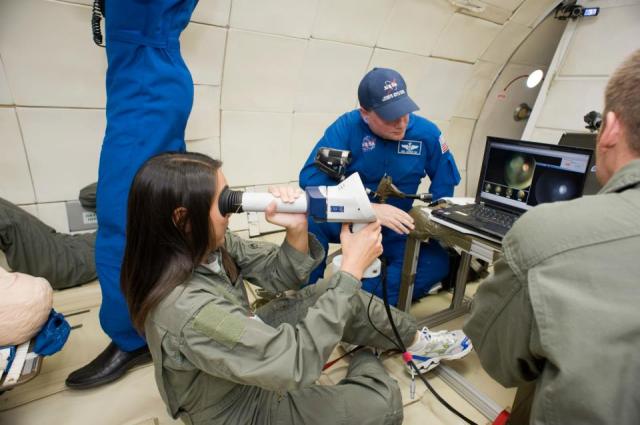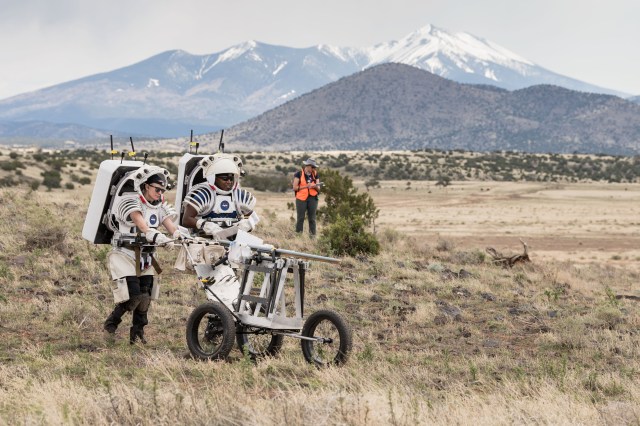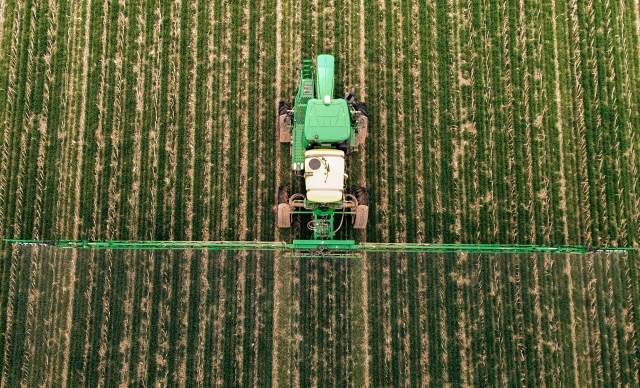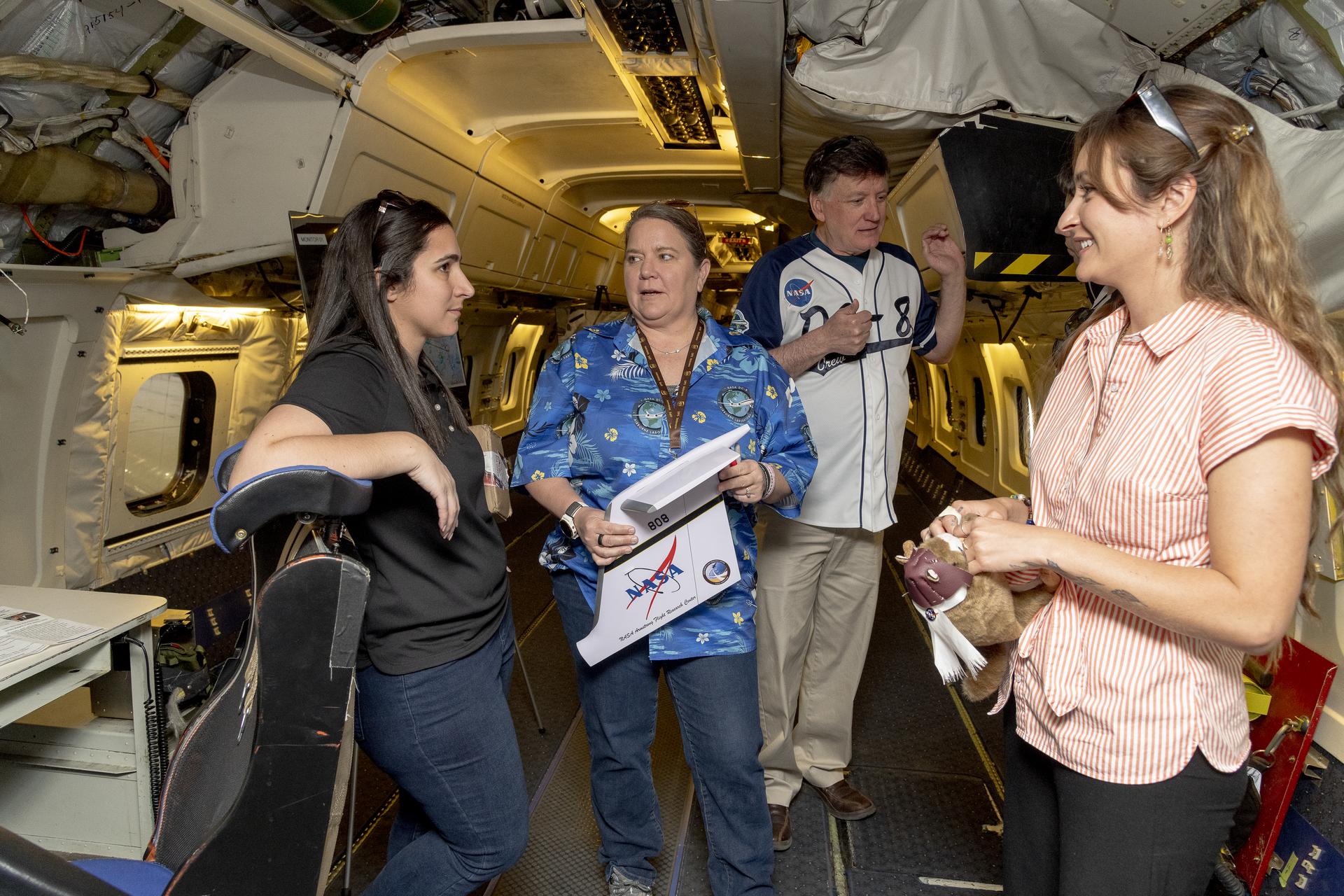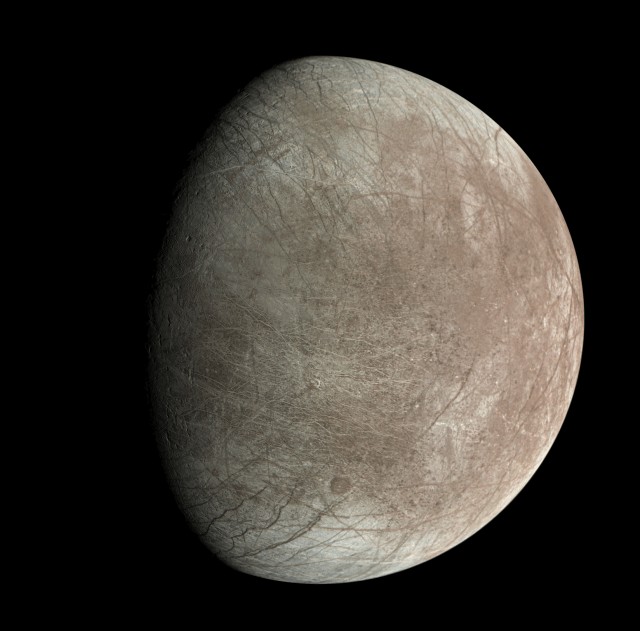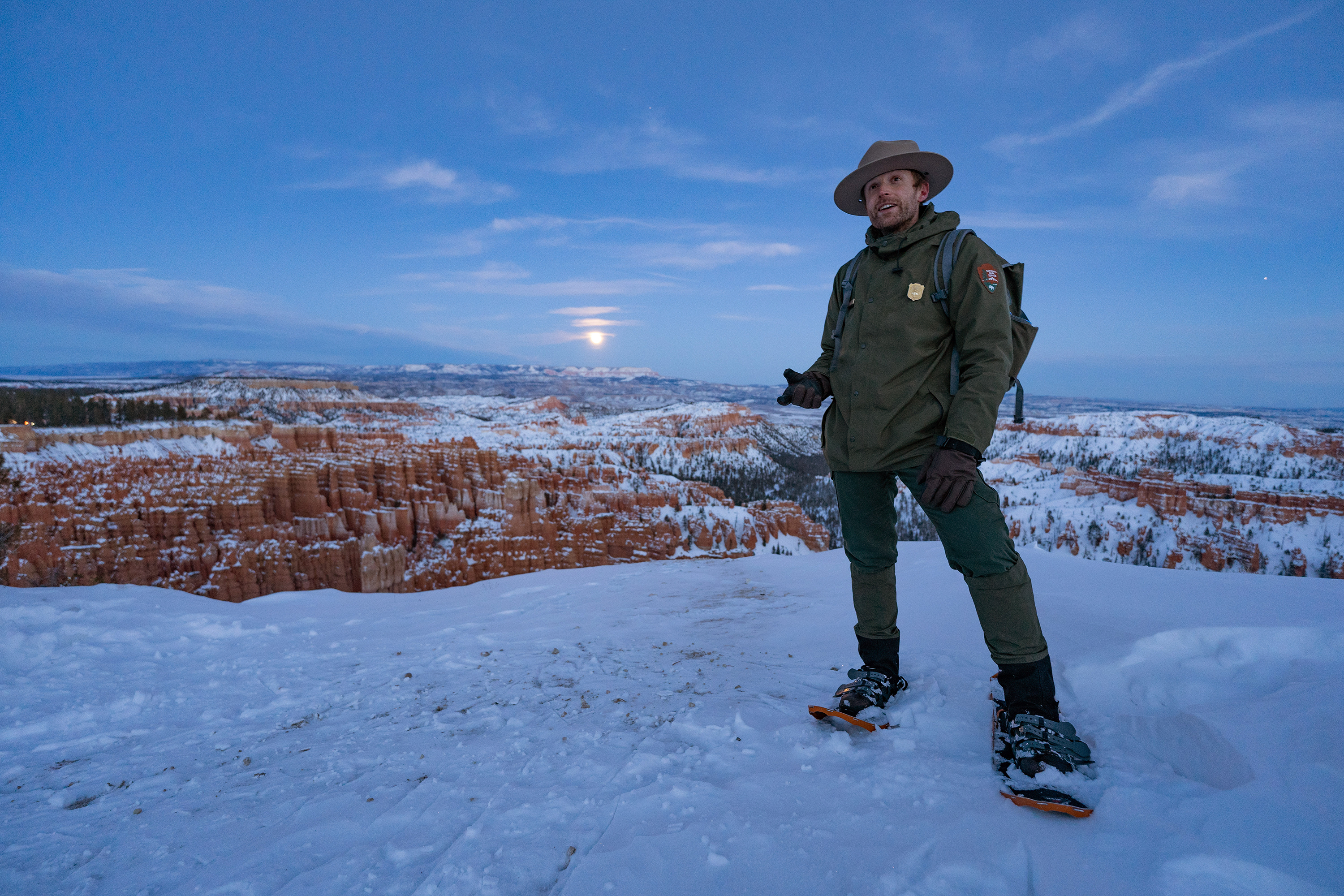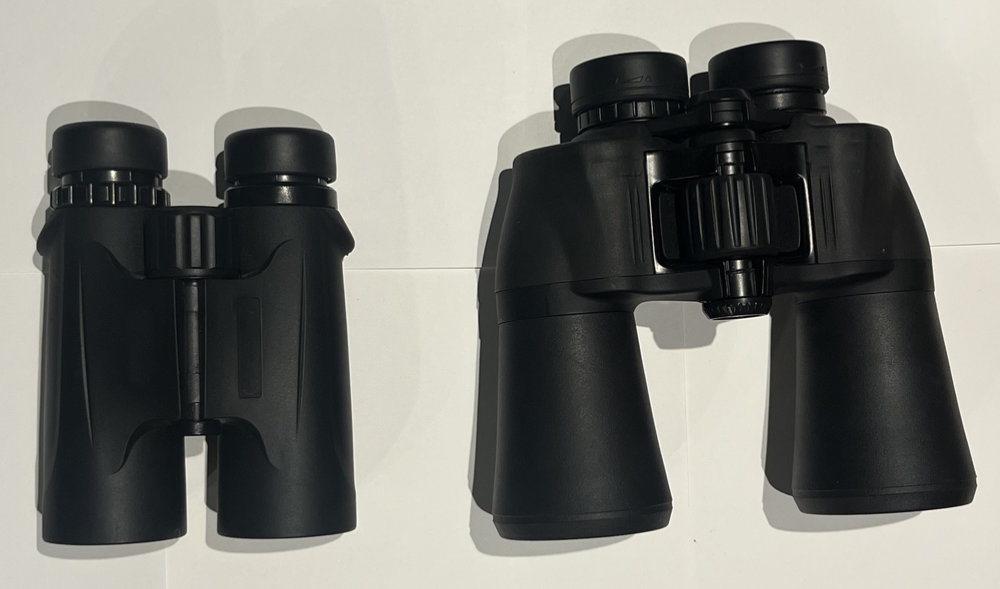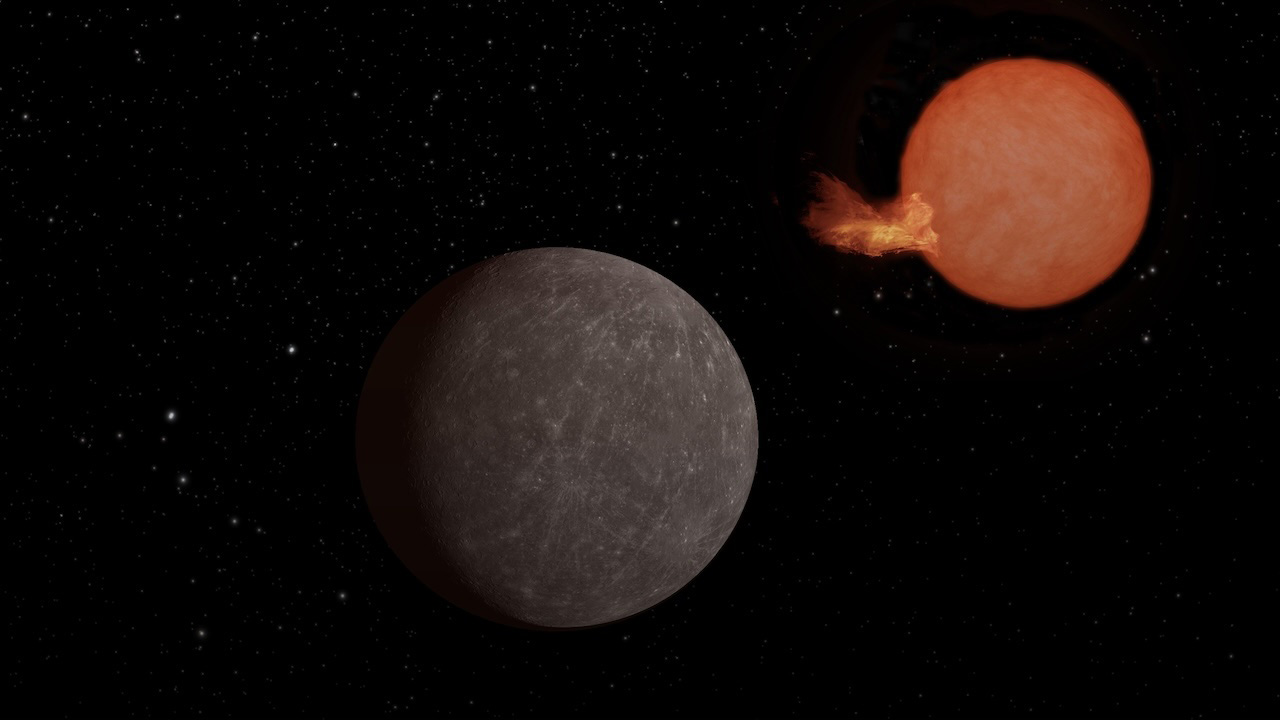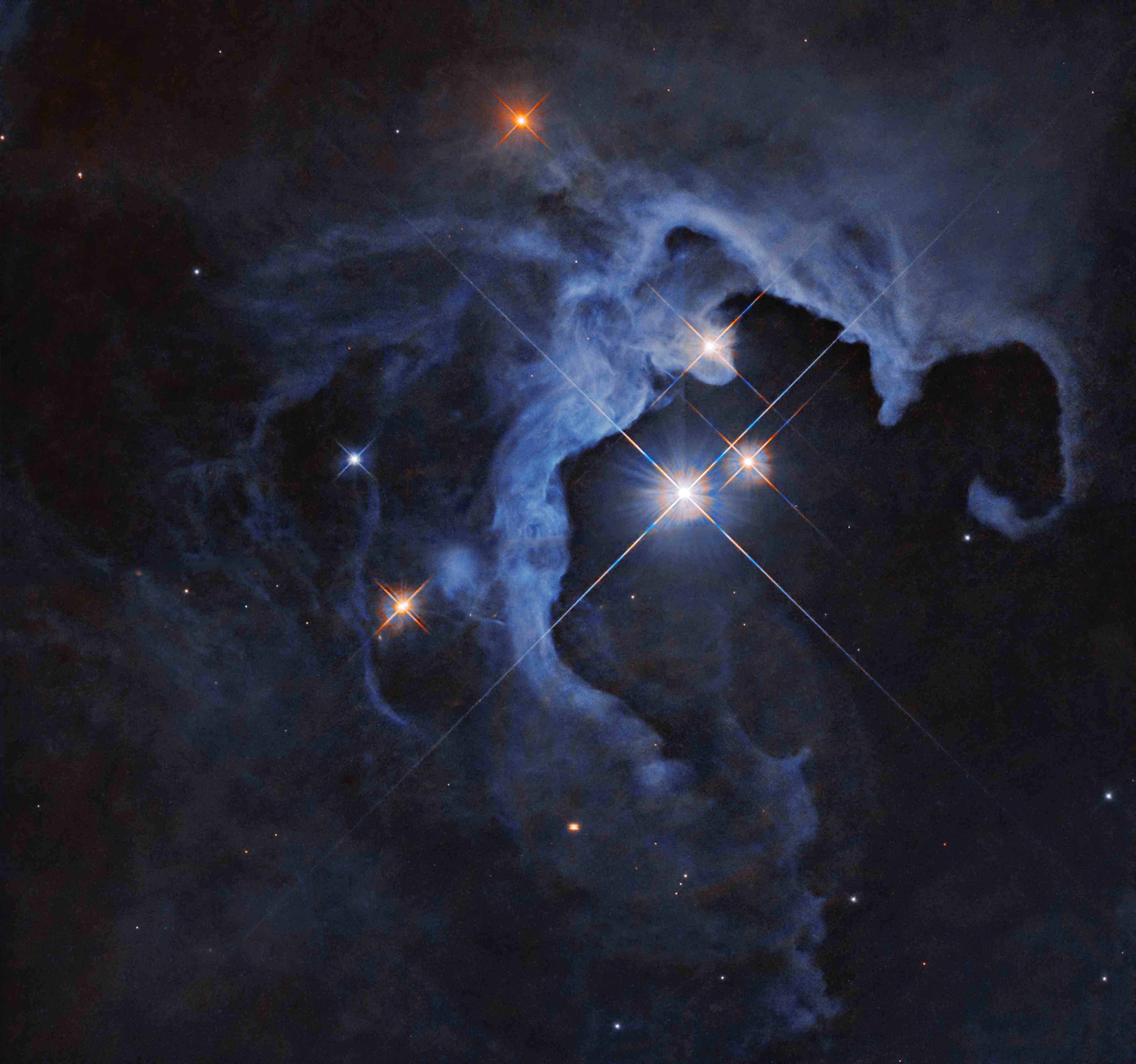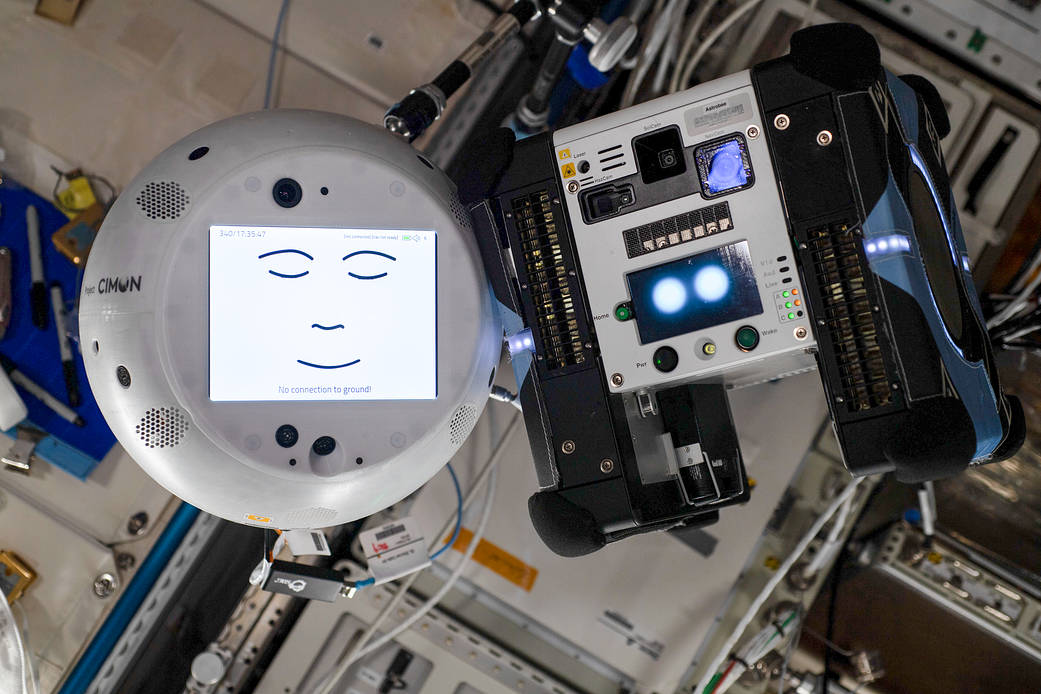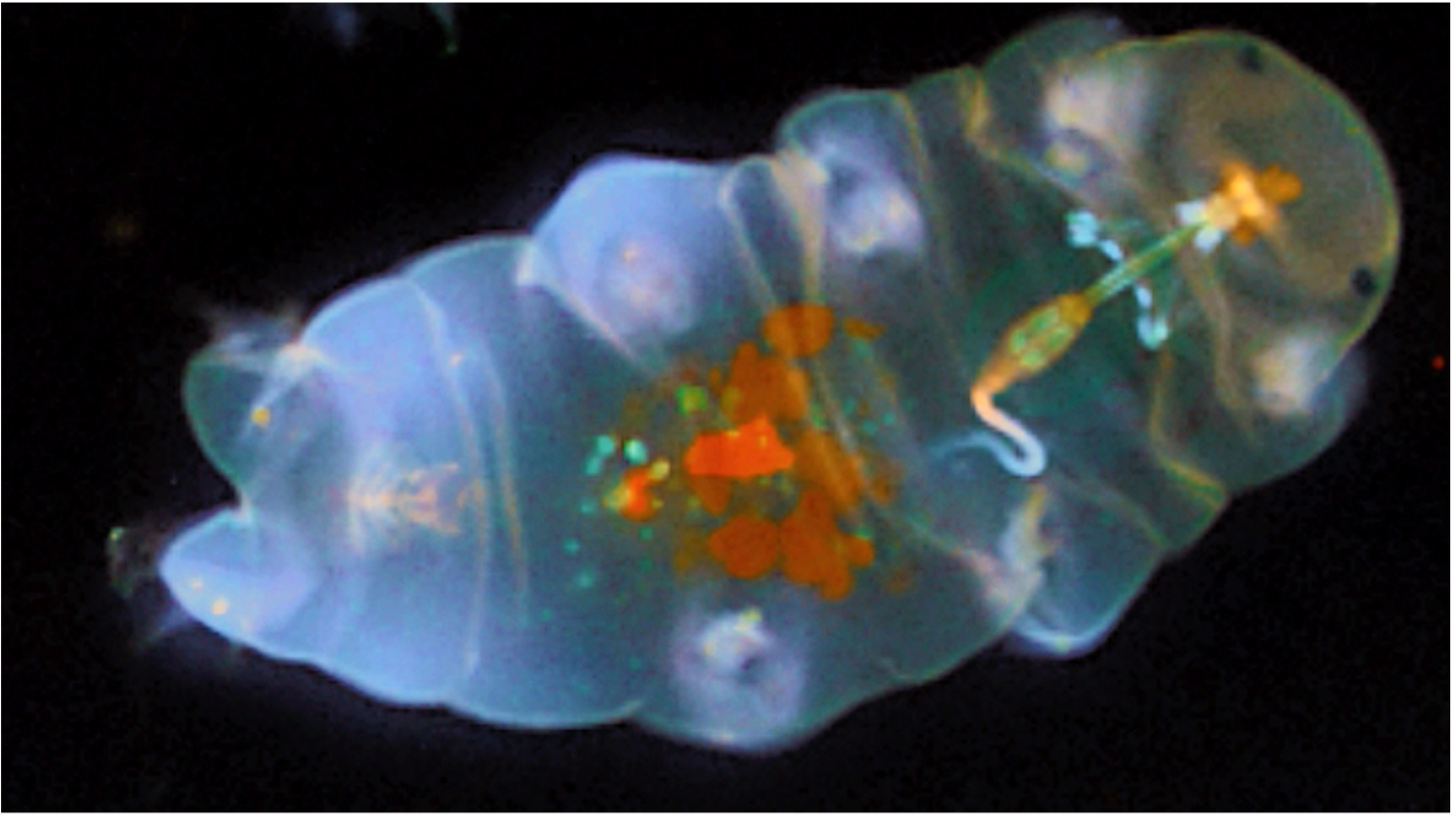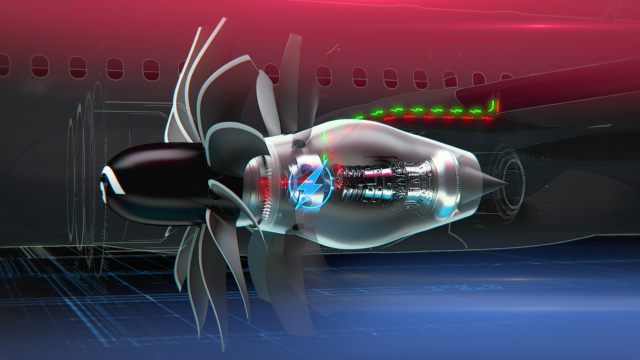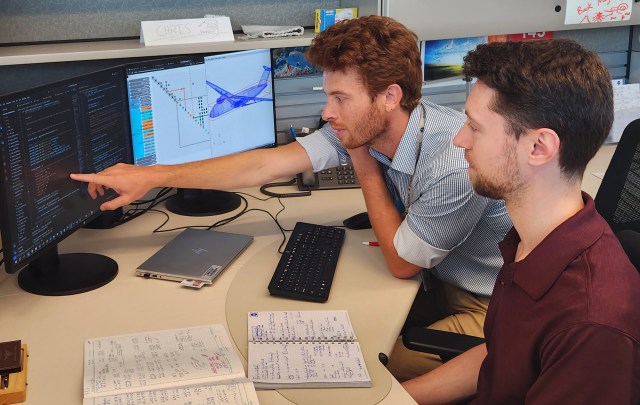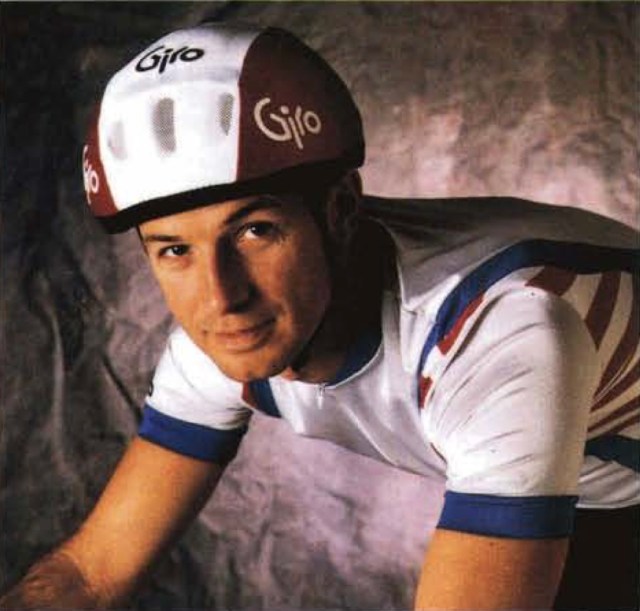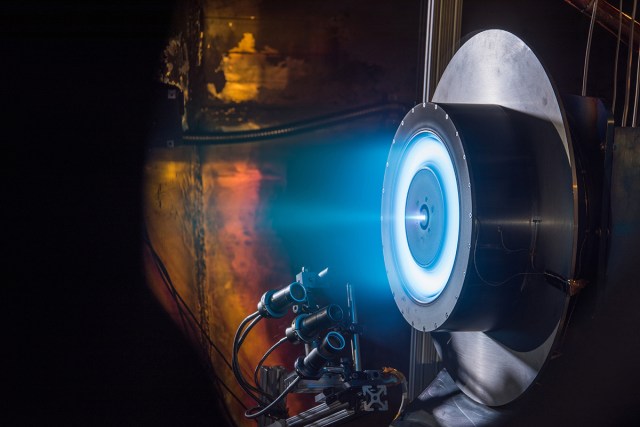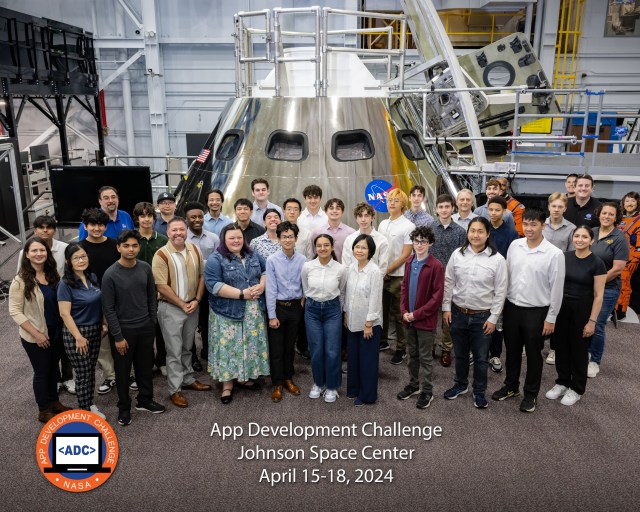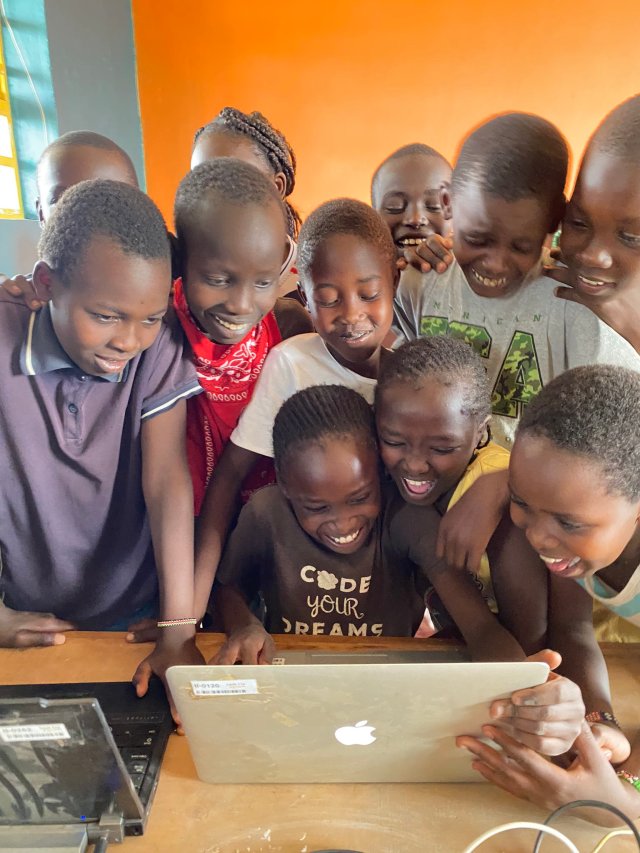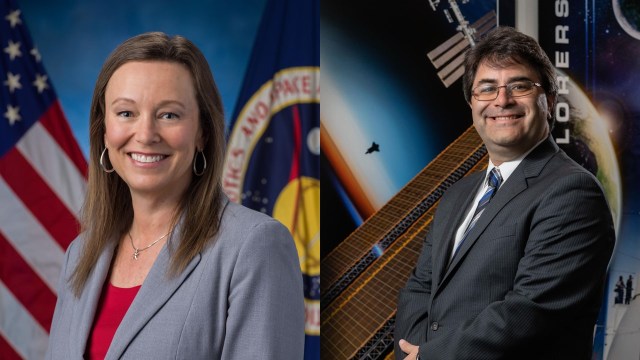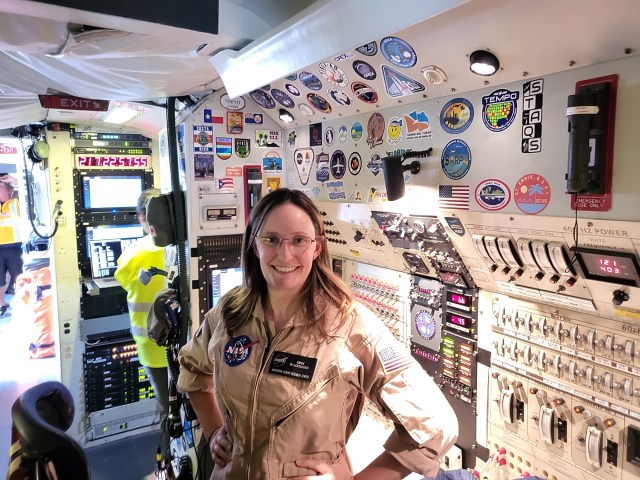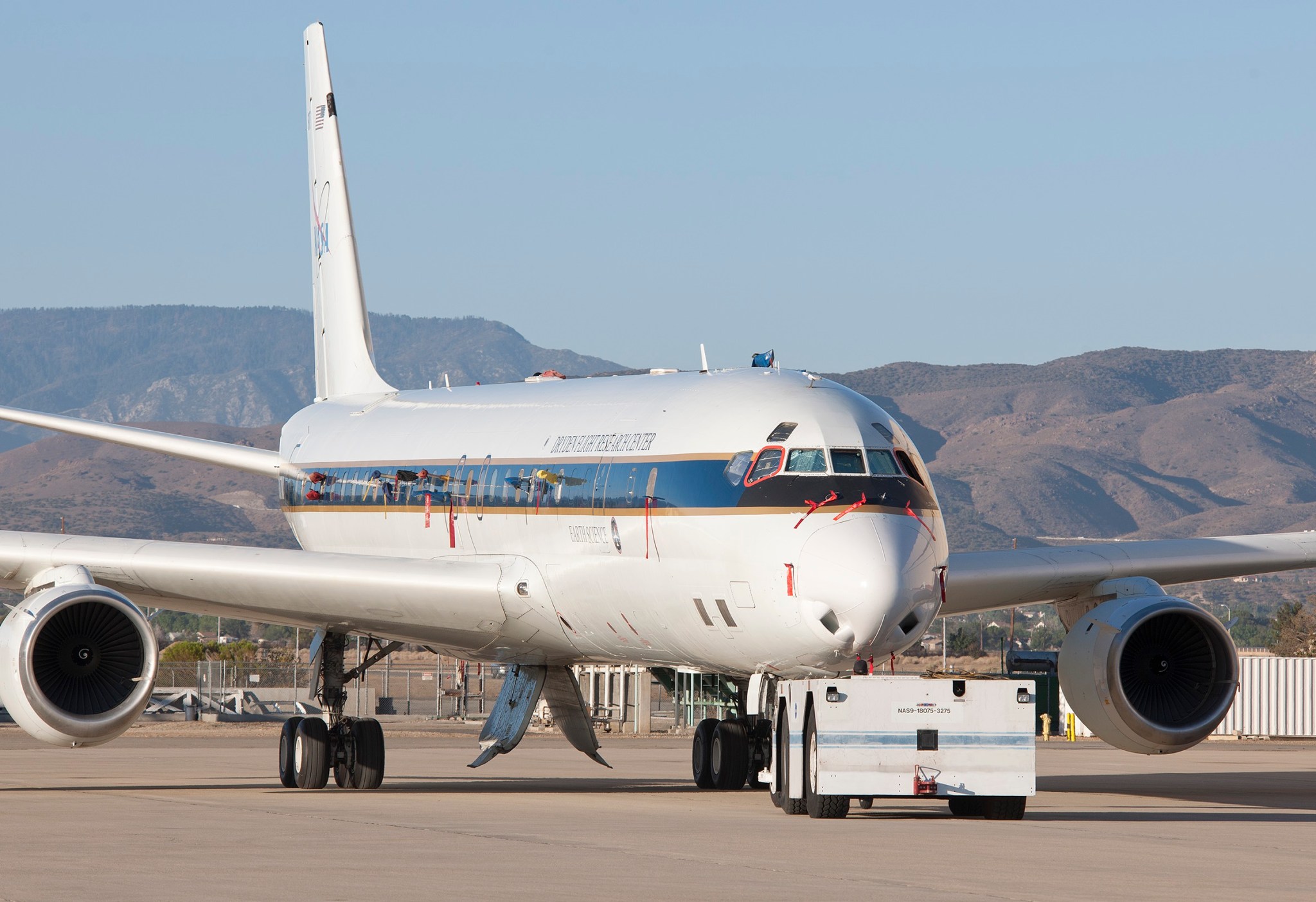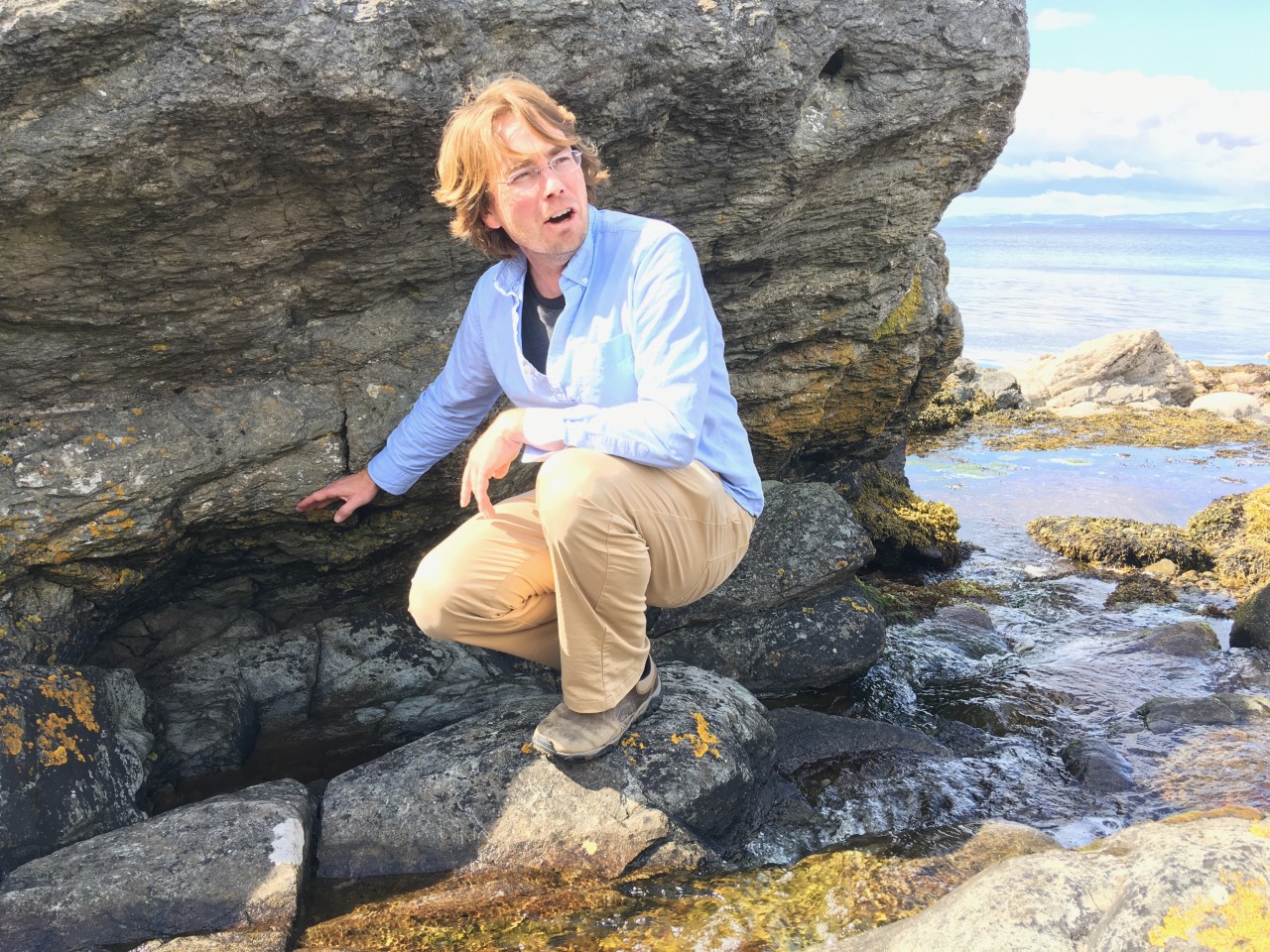We usually start way back and asking about your younger years, where you were born, about your family at that time, and especially if there was anything that far back that you can remember that might have oriented your mind toward the science career that you are pursuing? Or how early was it that you felt some kind of impulse toward science perhaps as an avocation?
Yes, sure. I grew up in the UK and yes, I still have the accent. I was in the UK until I came to the states for my Ph.D. My mom and my dad were both teachers.
What did they teach exactly?
We moved around a bit. We lived on the Isle of Wight for a time, that’s off the southern coast of England. We lived in Somerset, that’s the first place that I really remember. And then for a long time, we lived in a town called Malvern, which is in central England just southwest of Birmingham, towards the Welsh border. It’s a bit of a tourist destination in the UK. Malvern is famous for its spring water and became a tourist destination in Victorian times.
I think a big moment for me, starting my interest in science, was when we lived in Somerset. We would go to the beach at Lyme Regis, which is not too far away. Have you seen the film Ammonite? It’s about the fossil collector and geological pioneer Mary Anning, played by Kate Winslet, who worked in Lyme Regis. My family and I would go and collect fossils and minerals on the beach at Lyme Regis and that increased my interest in science. My dad was an advisory teacher, so he would come up with resources and materials to help other teachers teach elementary school science. I got my hands on those materials pretty early as well and I gained experience building things like electric circuits. We lived in the countryside and I was interested in the outdoors and being outside. On TV I remember there was this program about Gerald Durrell, he’s a naturalist from the UK, a TV show about his life. I’ve liked chemistry, rocks and minerals, and nature for a long time.
I wonder if your father let you get your hands on those materials by design? I mean he might have wanted to expose you to some of those things that he was teaching about and was interested in.
Maybe, yes. Sometimes I wonder about that. As a parent sometimes you might want the kids to get on with something by themselves!
My mom told me once that when we kids were little, she asked my dad: “Why do you subscribe to all these magazines? You have a dozen magazines that come here and you don’t read all of them”. And he said, “Well, I like to have them around because the kids might pick them up and get interested in something from them.” And I think I became a reader because there was so much laying around to read, so I think that helped me as well.
Yes, I definitely gravitated to books that were laying around.
So, when you were going to school did you find that you were somewhat drawn toward science subjects? You don’t get too much of that in grade school but in high school did you particularly like science classes over other classes?
Yes, I think I did prefer science and math classes. I liked the other classes too, although I didn’t have much aptitude for languages. I took French and German but struggled a bit. I did enjoy art class. We had a lot of freedom during art classes. And cooking classes, I enjoyed those, too.
That is very interesting because I had sort of the opposite experience. I was sort of a numbers guy and I didn’t do very well in art class. I didn’t care for it. I just didn’t have that gene, I guess.
I always enjoyed drawing and painting from elementary school. I didn’t get great grades in art but I still enjoyed it because the teaching style was to try and find the project and get on with it, so you had a lot of freedom. And even in high school, we were assigning our own grades to our work, so it was kind of a different, hands-off way of teaching.
So, you got straight A’s then, right?
Not quite, I think I was a little more realistic about my abilities.
When you got toward college and started having to choose your classes and your major, was that when things started to blossom, your interest in scientific research?
Yeah. Originally, I was thinking that I wanted to go into physics but it turned out that in high school I didn’t start on the right path for that early on, so I didn’t really have enough math classes. I tried to make up the math classes in my final year of high school and I got okay grades. I decided that instead of going to college in England, where the typical undergraduate degree is three years and you’re very focused on one subject, you would go in and just do physics or chemistry or something like that, I also applied to universities in Scotland. They have four-year undergraduate degrees and in the first two years you have a bit more opportunity to do different subjects. So, I ended up going to the University of St. Andrews in Scotland and there I was able to do chemistry, physics, and I ended up taking geology as well. I like the Scottish system.
It makes more sense, right? It gives you time to decide?
Exactly, yes. I think I was all geared up for physics but before I went to college, I did this thing called the “Year in Industry” scheme, to get some work experience. I was stuck in the lab the whole time working on equipment. As a result, I got more interested in geology because of the possibility of being able to do research outdoors. When I went to St. Andrews, I could try out both and I still enjoyed doing chemistry, but ultimately, I ended up with an undergraduate degree in geology.

Okay. Now before we move too far away from your young years, I cheated. I went back and looked at your NPP application and I saw that you spent some time as a lifeguard!
Yes, when I was applying for grad schools in the U.S., I had just moved home and at the time my parents were living in a tiny village in the northwest of England on the coast. There was not much to do and hardly any jobs, so I worked in a fish factory, packing shrimp cocktails for a couple of months, and I did some work in a bar, and then eventually I landed a more stable job as a lifeguard at the local pool. So, I did that while I was doing my graduate applications and trying to pay off a little bit of debt from the undergraduate days as well.
Tell us about crossing the pond and connecting up here in the United States.
One of my advisers at the university was from the United States and he said to me that a Ph.D. in the U.S. might be a good idea, something to look into. So that put the idea into my head. When I was younger my parents moved around a lot. When I was 13 or 14, they moved to Seychelles, in the middle of the Indian Ocean. It gave me the confidence to think about living in different countries, and so those two things together made me think about attending graduate school in the U.S., just to try something different.
And that was where?
That was UC Riverside, the University of California at Riverside.
And then you also connected up with Caltech, is that right?
That was after my Ph.D., I did some talks at Caltech and made connections that way. I got a postdoc at Caltech, my adviser was John Grotzinger. He was the project scientist for MSL, so I started to get exposed to Mars geology in his lab
And is that how you connected with David Blake?
Yes, I met him at a planetary meeting where I was giving a poster because I had started working on, or at least thinking about, mineralogy on Mars and I met David Blake, who had the CheMin instrument looking at the mineralogy of Mars, so there was a quick connection there. We hit it off and I submitted an NPP application and started a postdoc with Dave after Caltech.
He does very fascinating work. I’ve always been interested in the coming together of the engineering and science that he does, building the instrument and then obtaining and analyzing the data.
Right. It’s very unique that he has both the scientific understanding of what’s needed and also the skills to imagine the instruments that are needed to do that on a spacecraft.
Now you’re still at Ames so tell us a little about how the work that you were doing then has migrated into what you’re doing now and perhaps some of the highlights of the things that you have learned or discovered or have scientifically come to understand.
As a postdoc, I was working in South Australia and looking for areas on the Earth which draw possible parallels with conditions on Mars in the past. I was looking at lake sediments in a series of different lakes in a region called the Western Plains. The Plains are lava flows, basaltic lava flows, which is similar to the surface of Mars, and there’s a whole series of lakes in that area with different chemistries. I was trying to look at how the mineralogy reflects the different chemistries in the various lakes and hopefully apply those findings to the CheMin results on Mars. I worked on that while I was still working on things from my time at Caltech, so I was also working on Precambrian age rocks from Earth. These were the rocks I studied in my Ph.D., they’re from South China, from an episode of Earth history known as “Snowball Earth”, maybe you guys have heard of this?
No, I haven’t heard of it.
Well, the rocks that I was studying were deposited right after a period when the Earth was very cold, during the time when all of a sudden, the Earth warmed up again. These rocks from China are also special because they have tiny fossils of some of the earliest animal embryos. My project involved trying to reconstruct what kind of conditions those early fossil animals were living in based on the geochemistry and mineralogy of the rocks. At Caltech, I did a project looking into what mechanism allowed Earth to go from almost a complete snowball to warmer conditions again. What drove that climate change? Over the years I got more and more focused on Mars and the CheMin instrument, getting familiar with the kinds of data that were getting collected by the MSL rover and learning about the different problems in Mars geology and what the rover was trying to figure out. Those were the main things.
Would you like to go to Mars?
I would not like to go to Mars (laughs). Not at all. I think studying Mars geology and terrestrial geology makes you realize how special the Earth is. So that’s not for me.
These are not typical times but what is generally a typical day like for you? Are you able to do your work virtually pretty much 100%? Is there any lab work associated with it that you can’t do because of the pandemic?
Because I took over from Dave Blake as the PI for the CheMin instrument, a lot of the work I do can be done remotely. The MSL work has been switched very successfully to doing purely remote operations and even before COVID we had collaborators phoning in from all over the world into JPL, so you can pretty much do a lot with the Rover while working from home, so that hasn’t been a problem. I guess the only thing that I’ve suffered in terms of lab work is not being able to do X-ray diffraction measurements of samples from Mars analog areas that we do in my lab. But there’s plenty of other things to do, manuscripts to write and things like that so it hasn’t made a big impact on me. It has been challenging with the kids being home so much because we’ve got two daughters, a nine-year-old and a six-year-old. The other major project that I work on is the Astrobiology and Habitable Environments Database, but that’s all computer-based work so it hasn’t been too bad.
What do you enjoy most and least about your job? Are there aspects of your job, being both a government civil servant and a scientist, that you enjoy more than others? Or less than others?
I really appreciate the stability that comes with being a civil servant while having a young family. Unfortunately, that stability seems less common these days, so I’m very grateful for that. I guess the hardest thing for me being a civil servant is the pace of change from the top. It seems that the repackaging of similar things is coming at a faster and faster pace and people don’t seem to appreciate the time it takes to produce good science. Like with the CheMin instrument, for example, it took David Blake 20 years to really get that to work. For things that are worthwhile, you need to stick with them and give people a chance to work things out.
Well, you’re in good company. Mike Griffin, you may not remember him, but he was NASA administrator 10+ years ago, and he made that very complaint, saying that the things we do at NASA can’t be jerked left and right every four years. It takes longer than that to get the investment up and going and that was frustrating to him as well. So, let me throw kind of a curveball question at you: If you weren’t a research scientist what would be your dream job?
When I was really young my dream job was either to be a mailman or an explosives engineer! (laughs) Like a demolition engineer, but that’s changed. I was a mailman when I was in college, I would deliver the mail at Christmas time and during the holidays to earn a bit of money, so I don’t want to do that anymore. And I don’t have as strong a desire to do demolition anymore (laughs). The one thing I would do, but I don’t have any musical training, is be a composer for films and television. I think that would be a great job.
I see people working outside, like a mailman or a housebuilder or things like that, and I’ve often thought “It would sure be great to be outside and not to have to be indoors at my desk all day when I could be outside in the sunshine”. But then I realized that they’re out there all year long, in the rain and snow, so it’s not always a comfortable place, so I do like my job better than being outside. What advice would you give to a student or young person who looks at you and sees the kind of career that you have made for yourself and would like to have a life like that? Any general or specific advice for them?
I’m not sure I could give good advice because I didn’t feel like I had a plan really. I just kind of followed what I found interesting. I was lucky enough to be in a position to follow my interests and it has led me somewhere good.
It’s typical not to have had a plan but just to follow your interests.
Well, I think giving advice for people to do that, if you can do that, is great but the way things are now people have to be set on the path earlier and earlier. There seems to be less and less opportunity for that serendipity. I wouldn’t want to say “Oh, just do whatever you’re interested in and things will work out” because I’m not sure that is great advice anymore, but if people could do that it would be great. I’m not sure how things would work out for me if I did that now.
I think that attitude comes from a lot of life experiences. You’re just basically saying that you can’t really plan and expect that it will work out for you the way you planned it, so just go forward and take what’s in front of you.
Yes, just try to make the best of the opportunities that you have.
So, what do you do for fun?
In the lockdown, I ride my bike around the hills a lot. We spent a lot of time going to the beach with the kids. Now and again, we will go surfing. I enjoyed playing cricket a lot when I was younger and recently I’ve been enjoying watching cricket games on TV, kind of reliving my early days. You can get games from all over the world with steaming services. At the moment I’m watching England touring India so I’ve been watching that at nighttime. I really enjoy that.
And I forgot to ask: during this shelter-in-place period have you saved a lot of commute time? Or do you live close enough that it doesn’t make much of a difference?
I live far away from Ames, up in the East Bay and so it’s been very nice not to have to commute. I used to ride down on Amtrak and then ride my bike to Ames, but it would take a long time.
Where in the East Bay?
El Cerrito, just north of Berkeley.
How interesting! I’m glad I asked the question because I grew up in El Cerrito, up through the third grade, and then we moved away but I went to Castro school.
Oh, you did? We live very close to that park and we go down there and ride bikes around all the time.
We lived on Norvell Street so the next time you go by 1327 Norvell Street that was the house we lived in. How about that for a coincidence!
Yes!
What accomplishment are you most proud of that’s not science-related?
That’s not science-related? I’m proud of my family and kids. That’s probably the biggest one really. They’re not teenagers yet so it’s still a pleasure to be with them!
Your time is coming! (laughs). And how about who or what inspires you?
I think my parents were always the biggest inspiration for me. I’ve always had admiration respect for them, so definitely my parents.
Are they still in the UK or are they in the U.S.?
They’re in the UK, they moved back to Malvern, the nice town where we spent most of the time growing up.
Have you not been able to visit them for the past year because of the COVID thing?
Yeah, we didn’t visit. My mom had meant to come out last March, just when COVID was kicking off, but she canceled that, and they’ve been on quite a strict lockdown but they got the vaccine now, or the first dose, so that’s a relief.
We also ask if you have a favorite image or photo that we might see if we walked into your office? And then also is there perhaps a favorite quote that you’d like to have included, something that you find meaningful or inspirational?
I saw some other people’s favorite quotes and the only one that comes to mind is from The Hitchhikers Guide to the Galaxy, on the cover, which says “Don’t panic!” That’s the best one I can think of! (laughs)
That’s pretty good! Is there anything, Tom, that you wish we had asked that we didn’t ask about? I was going to ask about hobbies, you said you do some surfing and you probably don’t play a musical instrument, since you said you weren’t musically inclined, but you do like to watch cricket. Do you play cricket?
I used to play cricket. I played club cricket in high school and I played at the university, too. I played a couple of times on the university team. I guess there are some opportunities to play cricket down in the South Bay, but not so much around here.
I did pass a park recently where cricket was being played so there must be some teams down here.
Yeah, I think so. But my main hobby is riding around on my bike.
Fortunately, I live in Sunnyvale so I’m able to bike to work when we used to go to work. The Stevens Creek Trail goes from almost where I live to the right near the main gate and I still go out there, usually to Shoreline Park, for the exercise.
I used to ride from the Amtrak station in Sunnyvale, over to Ames, and sometimes I would go out on the waterfront, the Bay Trail. You can take that to Ames, it’s very nice.
Amtrak is great. I grew up, after leaving the Bay Area, in Auburn, which is a little town northeast of Sacramento on the way to Reno, and I sometimes take the train from the station at Great America up to Sacramento and then the bus on up to Auburn and it’s a very pleasant way to travel.
It’s much more pleasant than driving. I think I wouldn’t have been able to do that commute, it’s such a long drive, without the train.
Which station do you depart from? Berkeley or Richmond or Emeryville?
Mostly Richmond.
Sara: I used to live in Berkeley and eventually I moved down to the South Bay because it was impossible for me to do that commute. Sometimes it was two hours each way and if you have to do it every day it’s unhealthy for your body to be stuck in a car for so long!
It is unhealthy. But luckily with Dave, and with Ames in general, it’s so flexible. I was working at home a lot before COVID even struck.
Well, thank you, Tom. This has been a delight. We have enjoyed talking with you and will work this into a transcript and get it over to you, and once it’s ready and been gone over and edited, we’ll put it in the queue. There are several there already in various stages of readiness and these are posted once a month so it may be a few months before you see it.
Thank you again.
Thanks for doing this, both of you. I think it’s a good idea since we tend to compartmentalize, especially true for me because of where I live. I didn’t have really much interaction with people in building 245 even before COVID.
Interview conducted by Fred and Sara on 2/8/21

